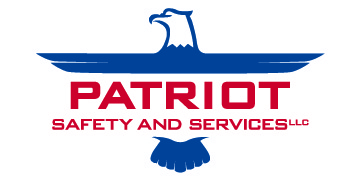The Role of FRA Background Check and Drug Testing in Railroad Safety
In the highly regulated rail industry, precision, responsibility, and trust are non-negotiable. Every locomotive operator, conductor, signal technician, and maintenance worker contributes to the safe and timely movement of people and goods across the country. To ensure these standards are upheld, the Federal Railroad Administration mandates strict oversight through FRA background check and drug testing.
FRA background check and drug testing programs help employers screen potential risks, monitor current employees, and demonstrate compliance with federal regulations. These procedures are critical in identifying individuals who may pose a safety concern or lack the qualifications required for safety-sensitive positions.
By implementing FRA background check and comprehensive drug testing, railroad employers can minimize the risk of workplace incidents, regulatory violations, and operational delays. More importantly, FRA background check and drug testing reinforce a broader culture of accountability and preparedness in an industry where the stakes are high and the margin for error is slim.
Understanding Who Needs FRA Background Check and Drug Testing
Under FRA regulations, anyone performing safety-sensitive functions in the rail industry must be included in a compliance program. FRA background check and drug testing apply to locomotive engineers, conductors, maintenance workers, signal inspectors, dispatchers, and certain contractors.
The FRA outlines clear guidelines for employers to follow in defining covered service roles. FRA background check and drug testing are not limited to direct employees—they may also extend to vendors or on-site drug testing services providers who contribute to regulated operations. Rail employers must be proactive in identifying all personnel who meet the criteria to ensure complete coverage.
Employers who fail to properly implement FRA background check and drug testing programs for all covered individuals may be subject to fines, penalties, or operational shutdowns. Timely and accurate application of FRA background check and drug testing is essential for continued compliance and safety assurance.
Key Components of FRA Background Check and Drug Testing Programs
A compliant FRA background check and DOT compliance drug testing solutions program includes several core components designed to protect rail operations from risk. Background screening is conducted to assess an applicant’s criminal background checks services, employment history, and eligibility to perform regulated tasks. FRA background check and drug testing may also include verification of certifications, licenses, and prior industry violations.
The drug and alcohol testing portion of the program focuses on identifying substance use that could impair an individual’s ability to perform safety-sensitive duties. FRA background check and drug testing protocols include pre-employment background checks, random testing, post-accident testing, reasonable suspicion testing, return-to-duty testing, and follow-up testing.
All FRA background check and drug testing procedures must follow strict federal guidelines. Drug testing must be conducted using urine samples analyzed by a certified laboratory, while alcohol testing is administered using breathalyzer or blood analysis methods.
Pre-Employment Requirements Under FRA Background Check and Drug Testing Regulations
Rail employers must conduct pre-employment FRA background check and drug testing before allowing any new hire to perform safety-sensitive duties. This includes collecting a negative test result for drug use and reviewing the individual’s past three years of drug and alcohol testing records from previous employers.
FRA background check and drug testing at the pre-employment stage help employers make informed hiring decisions and avoid onboarding candidates who present safety or compliance risks. If a candidate has a history of failed drug tests or alcohol violations, they may be required to complete a return-to-duty process or be disqualified from safety-sensitive roles.
FRA background check and drug testing at this early stage can also reveal secure criminal background checks or license suspensions that would otherwise go unnoticed. Employers are responsible for ensuring that all relevant checks are completed and documented before assigning any regulated responsibilities.
Random Testing and Ongoing Monitoring with FRA Background Check and Drug Testing
To maintain compliance and deter substance misuse in the workforce, the FRA requires that employers conduct random drug and alcohol testing. These tests must be unannounced, evenly distributed throughout the year, and scientifically randomized to ensure fairness.
FRA background check and drug testing policies must include systems for managing random selections and documenting test completion. Each eligible employee must have an equal chance of being selected for testing at any time, regardless of their role or shift.
Ongoing monitoring also includes evaluating behavioral cues and performance indicators. If an employer has reasonable suspicion that an employee is under the influence, they must initiate testing in accordance with FRA background check and drug testing guidelines. Documenting the basis for suspicion and conducting timely testing are critical to maintaining the program’s integrity.
FRA Background Check and Drug Testing for Post-Accident Situations
When a qualifying accident or incident occurs, the FRA mandates immediate post-accident drug testing for all involved employees who may have contributed to the event. FRA background check and drug testing protocols ensure that specimens are collected quickly and under proper chain-of-custody procedures.
The purpose of post-accident FRA background check and drug testing is not to assign blame, but to assess whether substance use was a contributing factor. Timely testing helps investigators understand the full context of the incident and ensures that safety concerns are identified and addressed.
Employers must ensure that they understand the specific thresholds and timelines associated with post-accident FRA background check and drug testing. In some cases, failure to conduct testing within required timeframes can result in automatic compliance violations.
Return-to-Duty and Follow-Up Testing Requirements
When an employee has violated drug and alcohol regulations, they are prohibited from returning to safety-sensitive duties until completing a formal rehabilitation and requalification process. FRA background check and drug testing play a critical role in this return-to-duty phase.
The employee must first complete a Substance Abuse Professional (SAP) evaluation and any recommended treatment program. Once the SAP deems the employee fit to return, a negative return-to-duty test is required. FRA background check and drug testing continue through follow-up testing for a period determined by the SAP, often lasting 12 months or more.
FRA background check and drug testing in this context help support recovery while ensuring public safety. Employers must manage this process with care and confidentiality, documenting all steps in accordance with FRA rules.
Managing Records and Audits for FRA Background Check and Drug Testing Programs
Accurate documentation is a cornerstone of compliance. FRA background check and drug testing programs must maintain detailed records of every test, result, consent form, training session, and procedure. These records must be stored securely and made available during FRA audits or inspections.
Employers are required to submit annual reports and, in some cases, participate in regulatory reviews. FRA background check and drug testing providers often offer nationwide TPA software provider solutions that simplify compliance and reduce human error.
When records are incomplete or disorganized, employers risk fines or sanctions—even if all required testing was performed. A proactive approach to managing FRA background check and drug testing records helps ensure that compliance is never in doubt.
Choosing a Trusted Provider for FRA Background Check and Drug Testing
Rail operators benefit from partnering with specialized providers that understand the complexity of FRA requirements. An experienced vendor will offer comprehensive services including DOT drug testing services, background screening, compliance tracking, and employee support.
FRA background check and drug testing providers should offer access to DOT-certified labs, trained collectors, 24/7 post-accident response teams, and secure reporting platforms. Expertise in FRA-specific guidelines ensures that policies and procedures remain aligned with evolving regulations.
A quality provider also offers training and education to help employers and employees understand their rights, responsibilities, and best practices. By choosing a proven partner, companies can confidently manage all aspects of their FRA background check and drug testing program.
FRA Background Check and Drug Testing as a Strategic Safety Investment
Compliance with FRA background check and drug testing requirements is more than a box to check. It is a strategic investment in safety, efficiency, and reputational protection. Programs that are consistently implemented and well-managed help employers avoid accidents, litigation, and regulatory actions.
More importantly, FRA background check and drug testing support a culture of excellence. Employees who understand that testing is part of their role are more likely to take their responsibilities seriously and operate with integrity.
Railroads that prioritize FRA background check and drug testing send a clear message—to regulators, customers, and the public—that safety is not just a goal, but a foundation.






